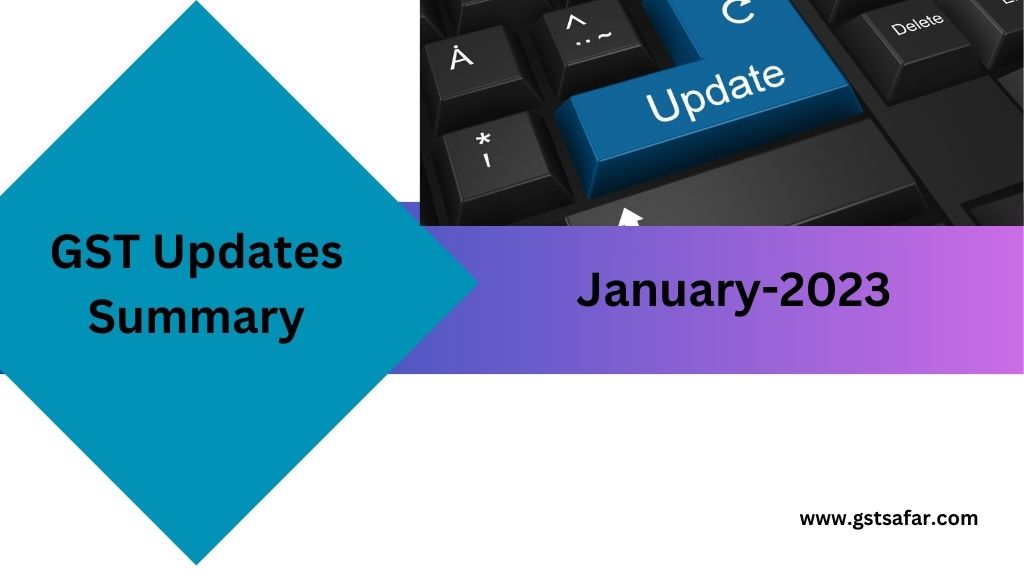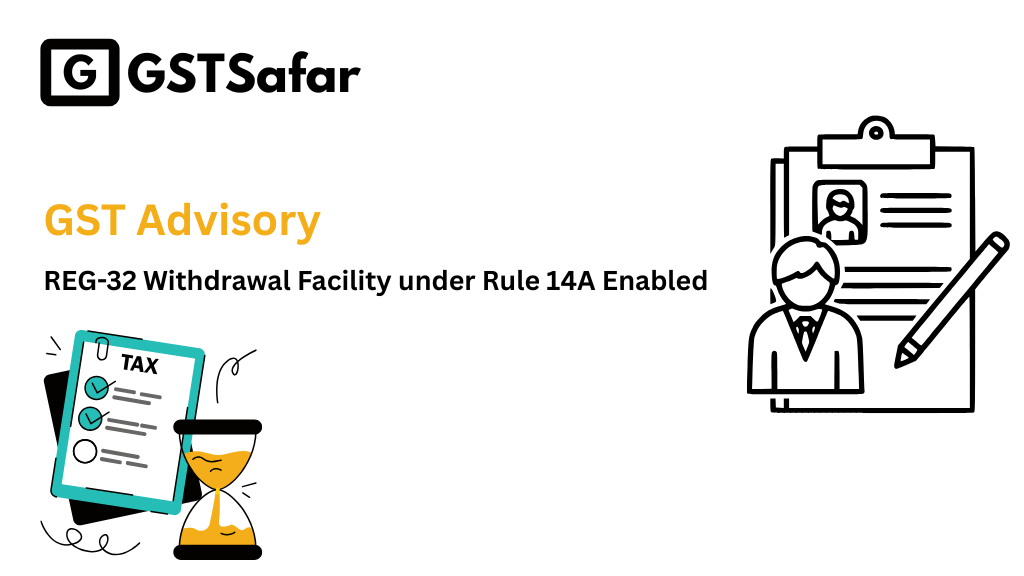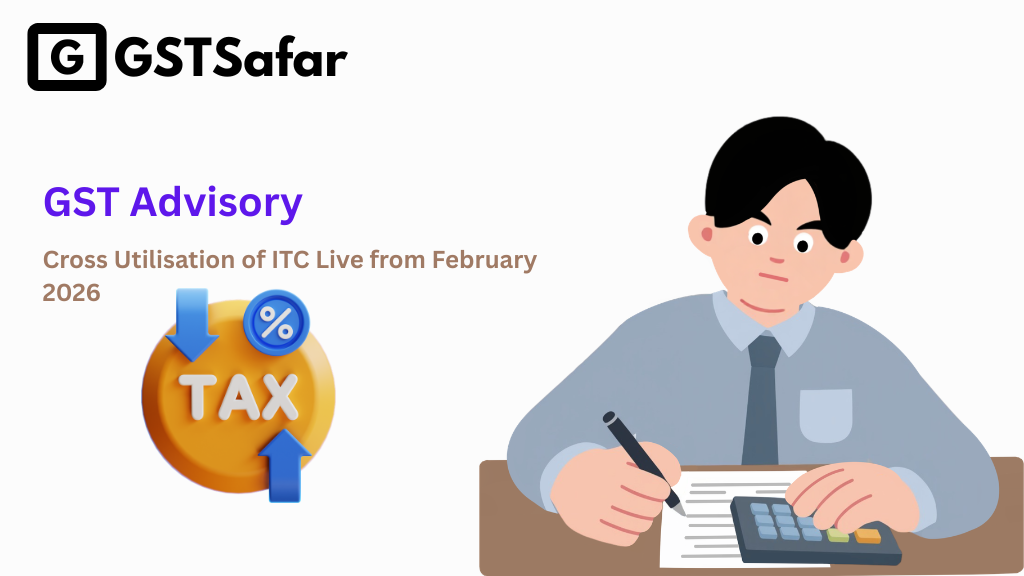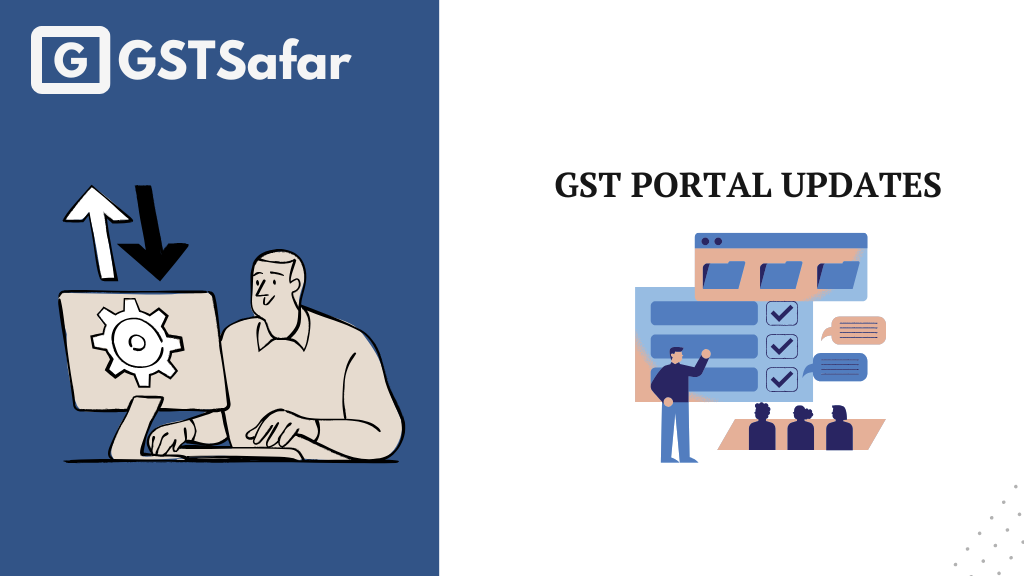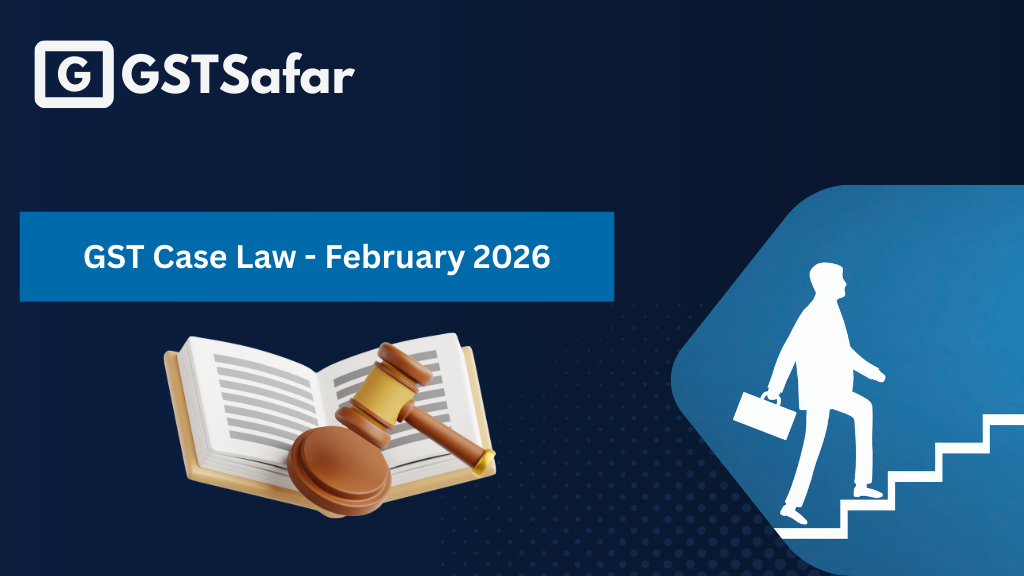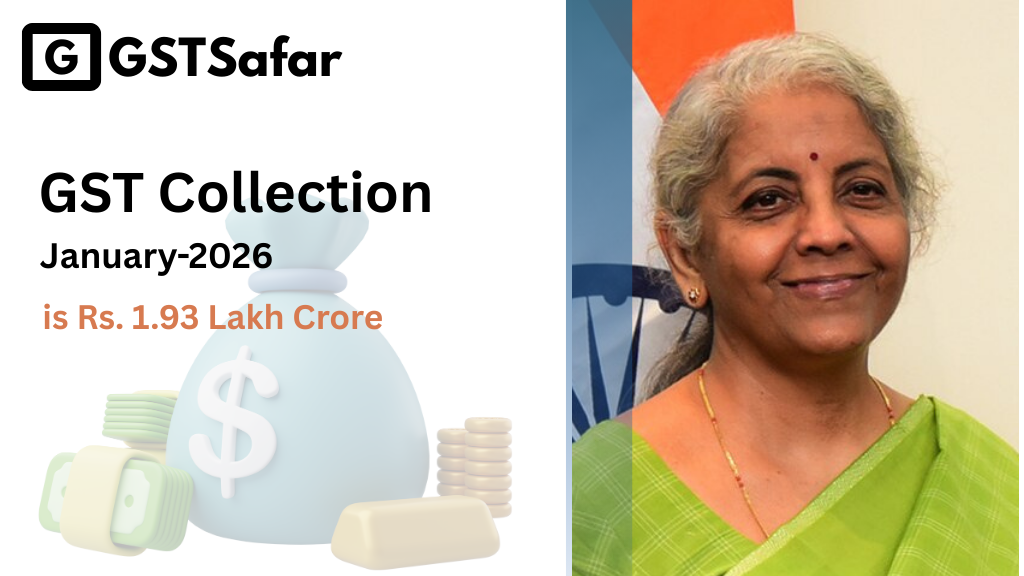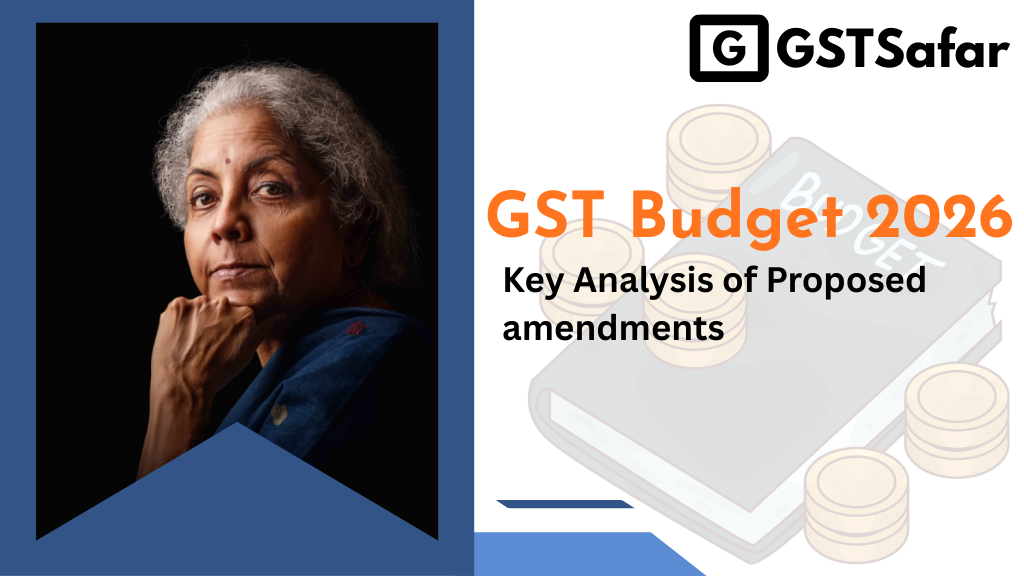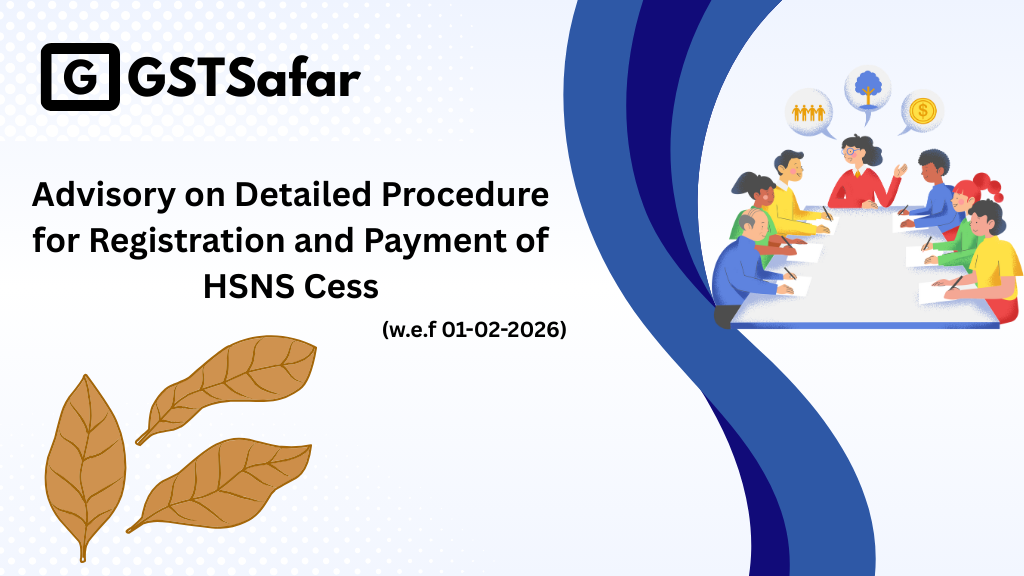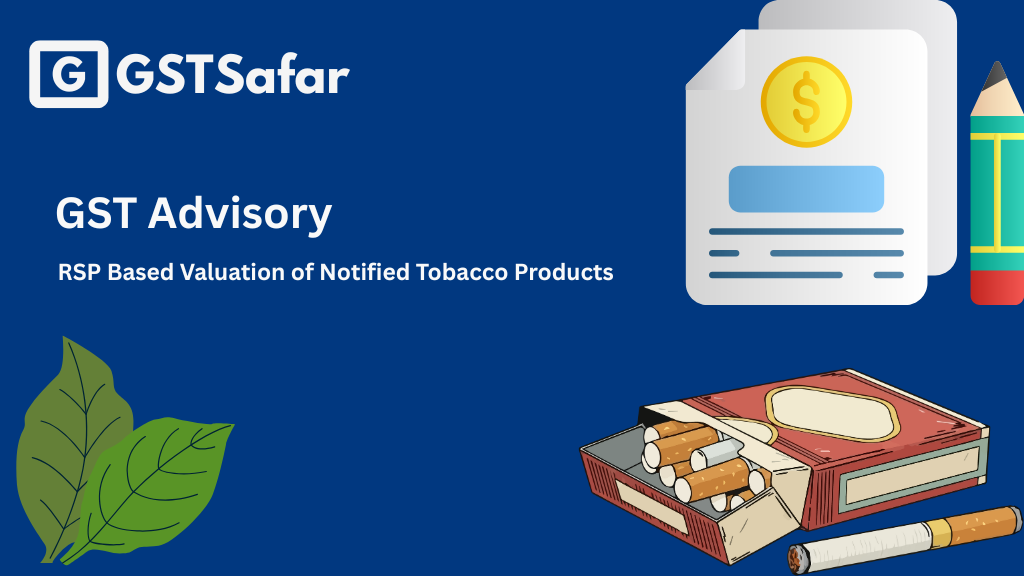This articles covers the latest gst updates summary January-2023. It contains all the Notifications and Circulars issued in January-2023 which covers all GST Updates January-2023. All these amendments have been presented hear topic wise and reference of relevant latest gst notifications and latest gst circulars have been given at bottom of each topic. As well as, I have given our own analysis wherever it is necessary.
Delegation of Superintendent Powers to Additional Assistant Director of DGGI
The government issued Notification No.14/2017 dated 01-07-2022 for appointing officers in different tax-related departments. Recently, they added a new point (8A) to this notification. It says that certain powers, like those of a superintendent, can now be given to officers like the Additional Assistant Director in the GST Intelligence, GST Department, or Audit Department. The superintendent of central tax assigned as a proper officer in the following cases vide Circular 3/3/2017-GST DT 05-07-2017.
| Sr No | Section/Rules under CGST Act,2017 | Heading | Summary |
| 1 | Section 35(6) | Accounts & records | If a registered person fails to account for goods or services, the superintendent will calculate the tax due on those unaccounted items as if they were supplied by that person. This calculation follows the rules of either section 73 or section 74, adjusted as necessary for goods. |
| 2 | Section 61(1) & 61(3) | Scrutiny of returns | Section61(1);- Superintendent may scrutinize the return and related particulars furnished by registered person. Section 61(3) provides power to extend time period & superintendent may initiate appropriate actions under section 65,66,67and determine tax u/s 73 &74 |
| 3 | Section 62(1) | Assessment of non-filers of return | If a registered person doesn’t file a return despite a notice, the Superintendent can assess their tax liability based on available information within five years. |
| 4 | Section 65(7) | Audit by tax authorities | Section 65(7) provides that where the audit conducted results in determination of tax not paid or short paid or erroneously refunded, or input tax credit wrongly availed or utilized, the Superintendent may initiate action under section 73 or section 74. |
| 5 | Section 66(6) | special audit to be ordered to be conducted | Section 66(6) provides that where the special audit conducted results in detection of tax not paid or short paid or erroneously paid, the Superintendent may initiate action under section 73 or section 75 |
| 6 | Section 67(11) | Inspection, search, seizure and arrest. | Section 67 (11) allows the Superintendent to seize documents if there’s suspicion of tax evasion, keeping them for investigations or prosecution. |
| 7 | Section 70(1) | Power to summons person to give evidence and produce documents | Under Section 70(1), the Superintendent can summon individuals to provide evidence or documents, following procedures similar to civil court summonses. |
| 8 | Section 73 | Section 73 deals with the determination of tax not paid or short paid or erroneously refunded or input tax credit wrongly availed or utilized for any reason other than fraud or any willful misstatement or suppression of facts Section 73(1): Superintendent serves notice for unpaid taxes or wrongly claimed credits, asking for explanation, payment with interest, and penalty. Section 73(2): Notice must be issued at least three months before the deadline. Section 73(3): Superintendent can serve a statement detailing tax issues not covered in the notice. Section 73(5): Taxpayer can pay taxes before notice, inform Superintendent, and avoid further notice or penalties. Section 73(6): If taxpayer pays the shortfall, no further notice is served. Section 73(7): If the paid amount is insufficient, the Superintendent issues a notice for the remaining sum. Section73(9):Superintendent determines tax, interest, and a penalty of 10% of the tax due or ₹10,000, whichever is higher. Section 73(10): The Superintendent issues the order within three years from the due date or erroneous refund date. | |
| 9 | Rule 56(6) | Maintenance of accounts | Rule 56(6) states that if taxable goods are found stored in undeclared places without proper documents, the Superintendent will assess tax as if they were supplied by the registered person. |
| 10 | Rule 99 | Scrutiny of returns | Rule 99(1) mandates that if a registered person’s return is selected for scrutiny, the Superintendent will assess it per Section 61 and issue a notice if discrepancies are found, seeking explanations and quantifying payable amounts. |
| 11 | Rule 99(2) | Scrutiny of returns | Rule 99(2) allows the registered person to acknowledge and pay discrepancies mentioned in the notice or provide explanations using FORM GST ASMT-11. |
| 12 | Rule 99(3) | Scrutiny of returns | Rule 99(3) states that if the explanation or information provided by the registered person is acceptable, the Superintendent will inform them using FORM GST ASMT-12. |
| 13 | Rule 132(1) | Power to summons | Rule 132(1): The Director General of Safeguards or an authorized officer acts as the Superintendent to summon persons for evidence under section 70, following civil court procedures. |
| 14 | Rule 142(1) | Notice & order for demand of amount payable | The Superintendent must electronically serve a summary of the notice (from section 73, 74, or 76) in FORM GST DRC-1 and a summary of the statement (from section 73 or 74) in FORM GST DRC-02. |
| 15 | Rule 142(2) | Notice & order for demand of amount payable | If a taxpayer pays taxes before notice or statement, they inform the Superintendent via FORM GST DRC-03, who issues FORM GST DRC-04 as acknowledgment. |
| 16 | Rule 142(3) | Notice & order for demand of amount payable | If a taxpayer pays tax, interest, and penalty within 30 days of notice, they inform the Superintendent using FORM GST DRC-03. |
| 17 | Rule 142(7) | Notice & order for demand of amount payable | The Superintendent rectifies orders using FORM GST DRC-08 as per the provisions of section 161. |
| 18 | Rule 150 | Assistance by police | The Superintendent can ask the jurisdictional police station for assistance, and they must provide enough officers for help. |
For Registration & composition Levy following Powers are delegated to superintendent as a Proper Officer:-
| Sr No. | Functions u/s of CGST or Rules made there under | Heading |
| 1 | Section25(8) | Procedure for registration |
| 2 | Section 28 | Amendment of registration |
| 3 | Section 29 | Cancellation of Registration |
| 4 | Rule 9 | Verification of application and approval |
| 5 | Rule 10 | Procedure of issue of registration certificate |
| 6 | Rule 12 | Grant of registration to person required to deduct tax at source or to collect tax at source |
| 7 | Rule 16 | Procedure for suo moto registration |
| 8 | Rule 17 | Assignment of UIN to certain special entity |
| 9 | Rule 19 | Amendment of registration |
| 10 | Rule 22 | Procedure for cancellation of registration |
| 11 | Rule 24 | Migration of person registered under existing law |
Clarification on GST Rates and Classification of Goods Based on the 48th GST Council meeting
| Sr No | Heading | Summary |
| 1 | Classification of “Rab” Under U.P. Rab (Movement Control Order), 1967 | Background: The representation seeks clarification on how to classify “Rab” under the U.P. Rab (Movement Control Order), 1967. Rab is a massecuite made from sugarcane juice on open pan furnaces, including Rab Galawat and Rab Salawat but excluding khandsari molasses or lauta gur. Issue: The confusion arises because Rab, despite being a sugarcane product, is in a semi-solid/liquid form, not fitting under heading 1701. The Supreme Court has also differentiated Rab from Molasses in a previous case. Clarification: As a result, Rab is classified under heading 1702, attracting an 18% GST rate per Schedule III of notification No. 1/2017-Central Tax (Rate), dated 28th June 2017. |
| 2 | Applicable GST Rate on Dal/Pulses By-Products | Background: Representations have been received seeking clarity on the GST rate applicable to by-products of Dal/Pulses milling, including Chilka, Khanda, and Churi/Chuni. GST Council Decision: The GST Council, in its 48th meeting, recommended fully exempting the supply of these goods regardless of their end use. This exemption is effective from 1st January 2023, under S. No. 102C of schedule of notification No. 2/2017-Central Tax (Rate), dated 28.06.2017. Regularization of Past Matters: In light of genuine doubts regarding GST applicability on these goods, matters arising between the issuance of Circular No. 179/11/2022-GST on 3rd August 2022, and the effective date of S. No. 102C, are regularized on an “as is” basis. This regularization extends to matters covered under para 8.6 of the said Circular. |
| 3 | Applicable HS Code for Carbonated Beverages with Fruit Juice | Clarification Requested: Representations have been received seeking clarification on the applicable six-digit HS code for ‘Carbonated Beverages of Fruit Drink’ or ‘Carbonated Beverages with Fruit Juice.’ GST Council Decision and Clarification: Based on the recommendation of the GST council in its 45th meeting, specific entries were created in notification No. 1/2017-Central Tax (Rate) and notification No. 1/2017-Compensation Cess (Rate) dated 28th June 2017. These entries, S. No. 12B in Schedule IV and S. No. 4B in Schedule, respectively, took effect from 1st October 2021 for goods described as ‘Carbonated Beverages of Fruit Drink’ or ‘Carbonated Beverages with Fruit Juice.’ Applicable HS Code and Tax Rates: The applicable six-digit HS code for these goods is HS 2202 99. They attract a GST rate of 28% and a Compensation Cess rate of 12%. S. Nos. 12B and 4B cover all carbonated beverages containing carbon dioxide, regardless of the purpose of the carbon dioxide addition. Exclusion for Clarity: To ensure clarity, an exclusion for these goods has been provided in the entry at S. No. 48 of Schedule-II of notification No. 1/2017-Central Tax (Rate) via notification No. 12/2022-Central Tax (Rate) dated 30th December 2022. |
| 4 | Classification and GST Rate for Snack Pellets (e.g., ‘Fryums’) | Clarification Requested: Representations have been received seeking clarification on the classification and applicable GST rate for snack pellets manufactured through the extrusion process, such as ‘fryums.’ Clarification Provided: It is clarified that snack pellets, including ‘fryums,’ produced via extrusion, are appropriately classified under tariff item 1905 90 30. This item encompasses goods described as ‘Extruded or expanded products, savoury or salted.’Consequently, these products attract a GST rate of 18% under S. No. 16 of Schedule-III of notification No. 1/2017-Central Tax (Rate) dated 28th June 2017. |
| 5 | Clarification on Compensation Cess for SUVS | Clarification Requested: Representations have been received seeking clarification regarding the specifications of motor vehicles that attract a compensation cess rate of 22% under entry S. No. 52B of notification No. 01/2017 Compensation Cess (Rate) dated 28th June 2017. Clarification Provided: It is clarified that a Compensation Cess rate of 22% applies to motor vehicles falling under heading 8703 that meet all four specifications: 1.Popularity as SUVs (Sports Utility Vehicles). 2. Engine capacity exceeding 1,500 cc. 3. Length exceeding 4,000 mm. 4. Ground clearance of 170 mm and above. This clarification specifically applies to Sports Utility Vehicles (SUVs). |
| 6 | Clarification on IGST Rates for Specific Goods under notification No. 3/2017-Integrated Tax (Rate): | Clarification Requested: Representations have been received expressing doubts regarding the applicable IGST rate on goods listed in notification No. 3/2017-Integrated Tax (Rate), dated 28th June 2017. Clarification Provided: Following the recommendation of the GST Council in its 47th Meeting held in June 2022, the IGST rate on goods specified in the list annexed to notification No. 3/2017-Integrated Tax (Rate), dated 28th June 2017, has been increased from 5% to 12% when imported for specific purposes like Petroleum operations/Coal bed methane operations, subject to relevant conditions. However, some goods listed in the same notification are also eligible for a lower IGST rate of 5% due to their entry in Schedule I of notification No. 1/2017-Integrated Tax (Rate), dated 28th June 2017, or any other IGST rate notification. The clarification states that for goods specified in the list annexed to notification No. 3/2017- Integrated Tax (Rate), dated 28th June 2017, eligible for both the 12% IGST rate under that notification and a lower rate under Schedule I or any other IGST rate notification, the importer can claim the benefit of the lower rate. |
Clarifications regarding applicability of GST on certain service
| Sr No | Heading | Summary |
| 1 | GST Exemption for Accommodation Services by Armed Forces Mess | Clarification Requested: A reference has been received seeking clarification on whether GST is applicable to accommodation services provided by Air Force Mess to its personnel. Clarification Provided: As per Sl. No. 6 of notification No. 12/2017 – Central Tax (Rate) dated 28.06.2017, services supplied by Central Government, State Government, Union Territory, or local authority to individuals other than business entities are exempt from GST. Therefore, in line with the GST Council’s recommendation, it is clarified that accommodation services offered by Air Force Mess and similar messes (such as Army mess, Navy mess, Paramilitary,and Police forces mess) to their personnel or any non-business entity fall under this exemption. This exemption applies if the services provided by these messes qualify as services supplied by a Central Government, State Government, Union Territory, or local authority. |
| 2 | GST Applicability Incentives for RuPay BHIM-UPI Promotion on and | Clarification Requested: People are asking if GST applies to the rewards that MeitY gives to banks for promoting the use of RuPay Debit Cards and BHIM-UPI for small transactions. The answer is no. MeitY’s incentives are like subsidies, not regular payments for services. Since subsidies aren’t taxed, GST doesn’t apply to these incentives. Clarification Provided: The government gives banks rewards for encouraging people to use RuPay Debit Cards and BHIM-UPI for small transactions. These rewards are based on a percentage of the transaction value, up to Rs. 2000. Banks can’t charge any extra fees for using these cards. The service banks provide for these digital payments is the same as for other cards or digital methods. The difference is that the government pays the banks directly instead of the users or merchants. This payment from the government is like a subsidy tied to the service cost. Because it’s a subsidy, it’s not counted as taxable income, so GST doesn’t apply to these rewards. |
Read similar article
